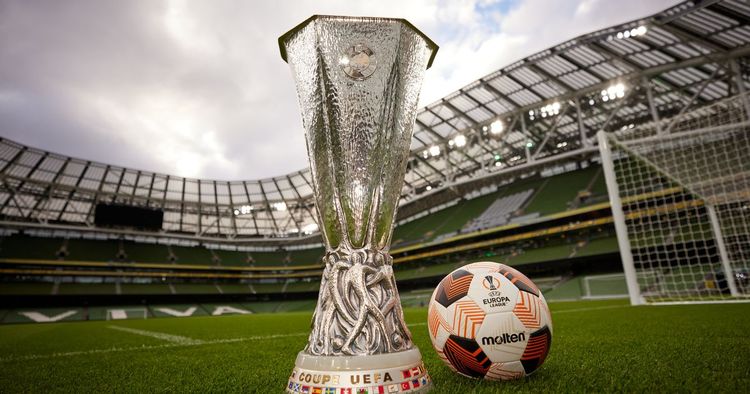Liverpool is the heavy favorite to advance from its Round-of-16 Europa League tie against Sparta Prague. It earned a 5-1 away win in the first leg, and progress at Anfield this Thursday is considered little more than a formality.
Ever since Liverpool missed out on the Champions League, pipped to fourth place by Manchester United and Newcastle, it was clear that Jürgen Klopp's side would be among the favorites to claim the one trophy that has so far eluded the manager — mostly because he has so rarely been competing for it. No doubt he would much rather be in Europe's elite competition, but as this is his final season, it is at least a last chance to 'compete the set'.
Such an honor would come with reasonably significant prize money. Missing out on the riches of the Champions League is a big blow to any club, especially a side like Liverpool with such a focus on being self-sustaining, but Klopp's team is on track to net a respectable sum.
READ MORE: Barcelona issued firm Liverpool transfer response as Newcastle decides on Eddie Howe
READ MORE: Liverpool set to be impacted by Champions League changes as UEFA settles details of new format
That said, it has already lost out on around $1.3m (£1m/€1.2m), having only won four group stage games out of six. Liverpool's prize money from the games it did win during this phase of the tournament totaled $2.6m (£2m/€2.4m).
That's in addition to the approximately $3.9m (£3m/€3.5m) Liverpool received simply for taking part in the group stage. Klopp's side also received a bonus of roughly $1.2m (£900k/€1.1m) for topping Group E.
Participation in the Round of 16, to which Liverpool received a bye thanks to finishing top of the group, is worth a further $1.3m (£1m/€1.2m). Ahead of the second game against Sparta Prague, then, the Reds have earned somewhere in the region of $9m (£7m/€8.2m) in Europa League prize money.
That pales in comparison to the Champions League pot. Manchester United and Newcastle earned $17m (£13.3m/€15.6m) just for appearing in the group stage.
But having done so well to beat Liverpool to fourth, both clubs then exited the Champions League at the first hurdle, failing to even drop into the Europa League. That put an abrupt stop to their revenues.
Manchester United won just two games and lost the other four. That earned about $4.1m (£3.2m/€3.7m) in prize money, per The Athletic, meaning its European adventure only yielded approximately $21.1m (£16.5m/€19.3m) in performance-related payments. Newcastle will have earned marginally less, having won just once.
That still leaves a gap of around $12.1m for Liverpool to bridge in order for its Europa League run to have been more lucrative in prize money terms than Manchester United's stay in the Champions League. But that's possible if Klopp goes all the way.
Liverpool is on the verge of another $1.9m (£1.5m/€1.8m) payment, presuming it can hold onto a four-goal aggregate advantage at Anfield against Sparta Prague. Reaching the semi-finals would bring another $3m (£2.4m/€2.7m), with a place in the final worth $4.9m (£3.8m/€4.5m).
That would still leave Liverpool a couple of million dollars short of Manchester United. But the winners of the Europa League final earn a further $4.3m (£3.4m/€3.9m).
Totaling all of those payments, Liverpool will have earned more than Manchester United in European prize money this season if it goes all the way, quite a remarkable feat. That's not to mention the added revenue of three extra games at a packed-out Anfield, now with a higher capacity than ever before.
Liverpool.com says: It's the definition of 'fumbling the bag' for Manchester United and Newcastle. That Liverpool could make more from its Europa League run is a damning indictment of a wasted opportunity at both clubs.
On the other hand, Klopp has done well to steer Liverpool through the Europa League so far, mitigating the effects of a year-long absence from the Champions League as much as possible. Meanwhile, the stellar league form means the Reds will be straight back, while Manchester United and Newcastle are both in danger of missing out. Ironically, their own early exits could be part of the problem, jeopardizing the Premier League's potential fifth qualifying spot for next season's expanded tournament.










































